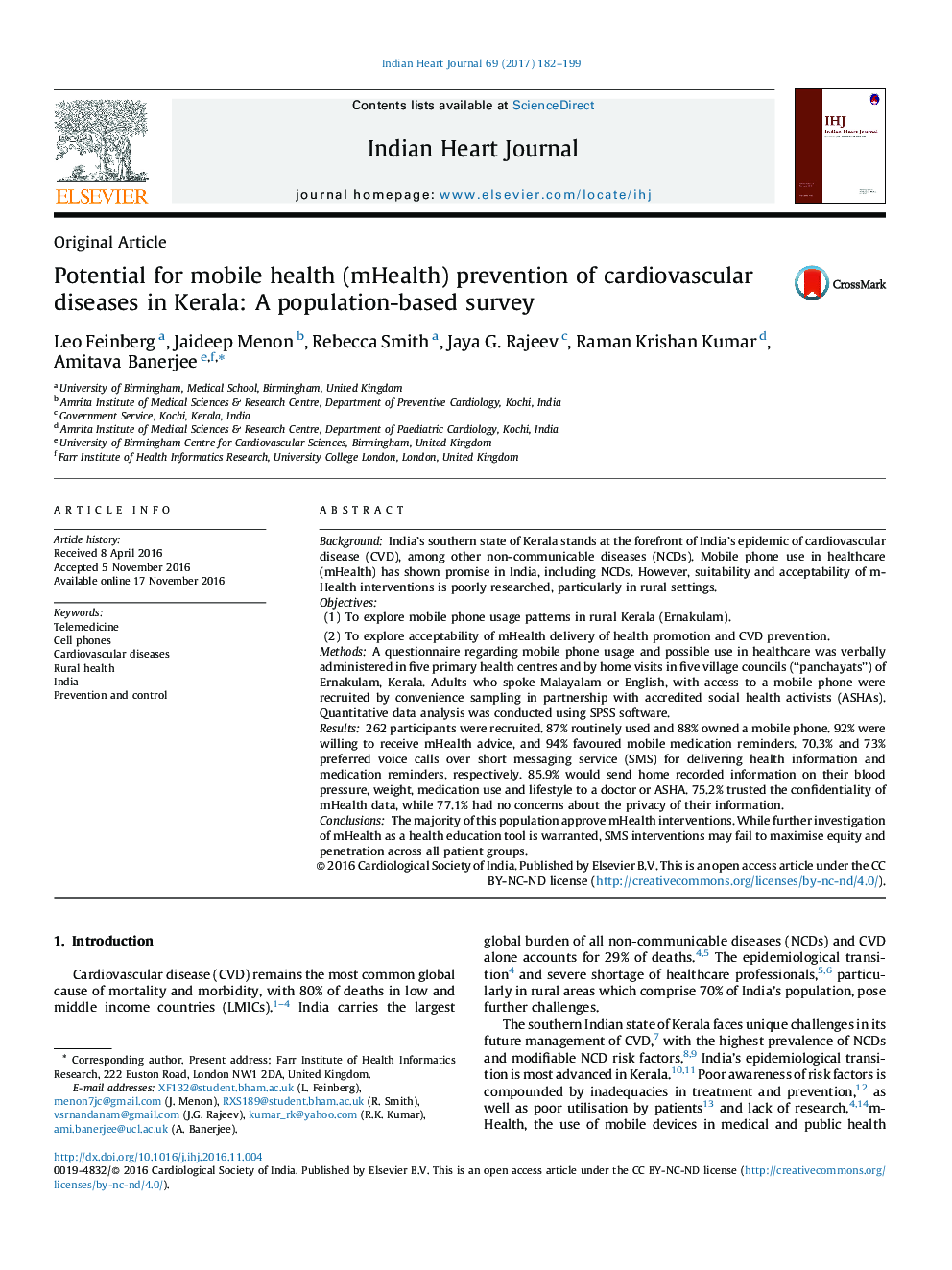| کد مقاله | کد نشریه | سال انتشار | مقاله انگلیسی | نسخه تمام متن |
|---|---|---|---|---|
| 5603972 | 1405439 | 2017 | 18 صفحه PDF | دانلود رایگان |

- First study to assess the suitability of mHealth interventions in Kerala.
- There is public approval for mHealth interventions in NCD prevention.
- Voice calls in Malayalam have potential as a health education tool in CVD prevention.
- SMS interventions may be unsuitable and widen existing health disparities.
BackgroundIndia's southern state of Kerala stands at the forefront of India's epidemic of cardiovascular disease (CVD), among other non-communicable diseases (NCDs). Mobile phone use in healthcare (mHealth) has shown promise in India, including NCDs. However, suitability and acceptability of m-Health interventions is poorly researched, particularly in rural settings.Objectives(1)To explore mobile phone usage patterns in rural Kerala (Ernakulam).(2)To explore acceptability of mHealth delivery of health promotion and CVD prevention.MethodsA questionnaire regarding mobile phone usage and possible use in healthcare was verbally administered in five primary health centres and by home visits in five village councils (“panchayats”) of Ernakulam, Kerala. Adults who spoke Malayalam or English, with access to a mobile phone were recruited by convenience sampling in partnership with accredited social health activists (ASHAs). Quantitative data analysis was conducted using SPSS software.Results262 participants were recruited. 87% routinely used and 88% owned a mobile phone. 92% were willing to receive mHealth advice, and 94% favoured mobile medication reminders. 70.3% and 73% preferred voice calls over short messaging service (SMS) for delivering health information and medication reminders, respectively. 85.9% would send home recorded information on their blood pressure, weight, medication use and lifestyle to a doctor or ASHA. 75.2% trusted the confidentiality of mHealth data, while 77.1% had no concerns about the privacy of their information.ConclusionsThe majority of this population approve mHealth interventions. While further investigation of mHealth as a health education tool is warranted, SMS interventions may fail to maximise equity and penetration across all patient groups.
Journal: Indian Heart Journal - Volume 69, Issue 2, MarchâApril 2017, Pages 182-199